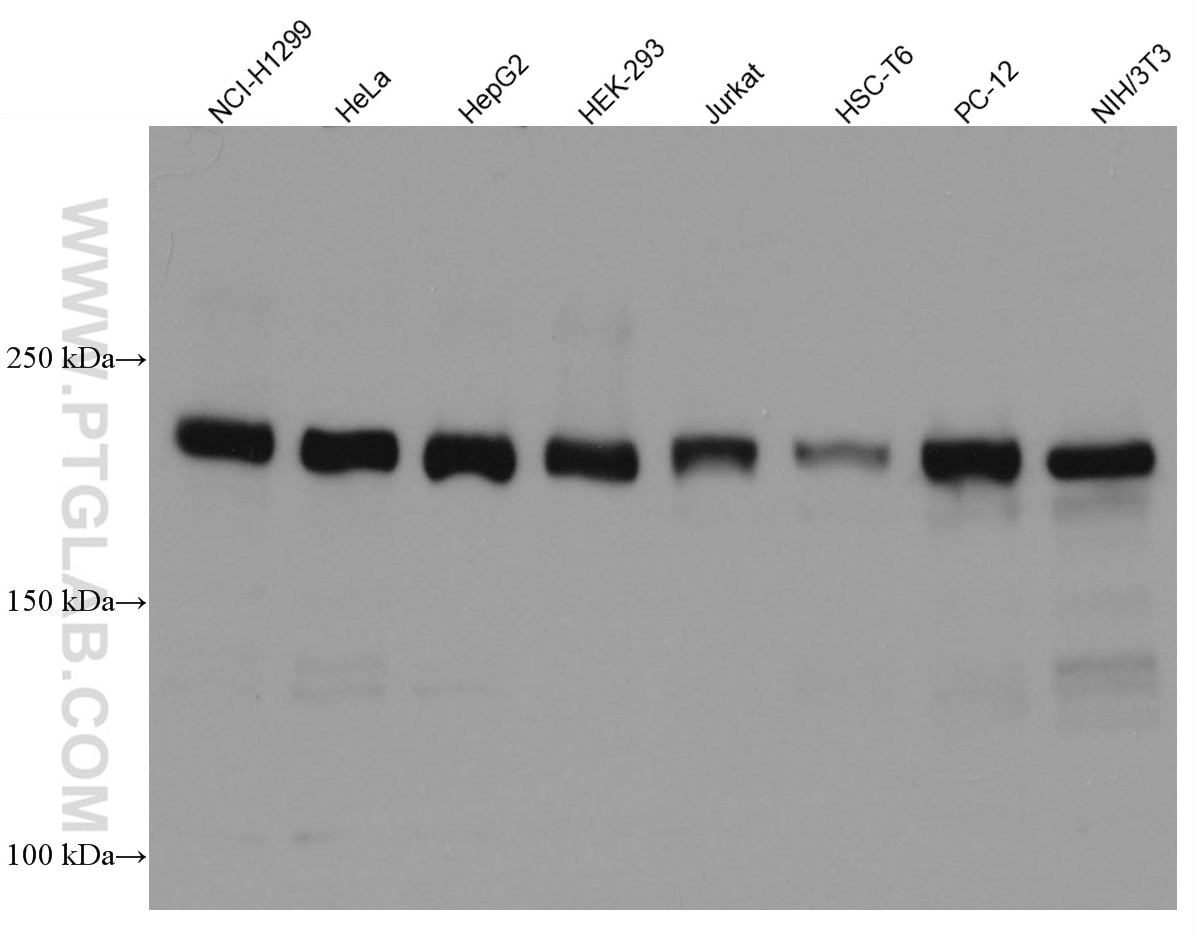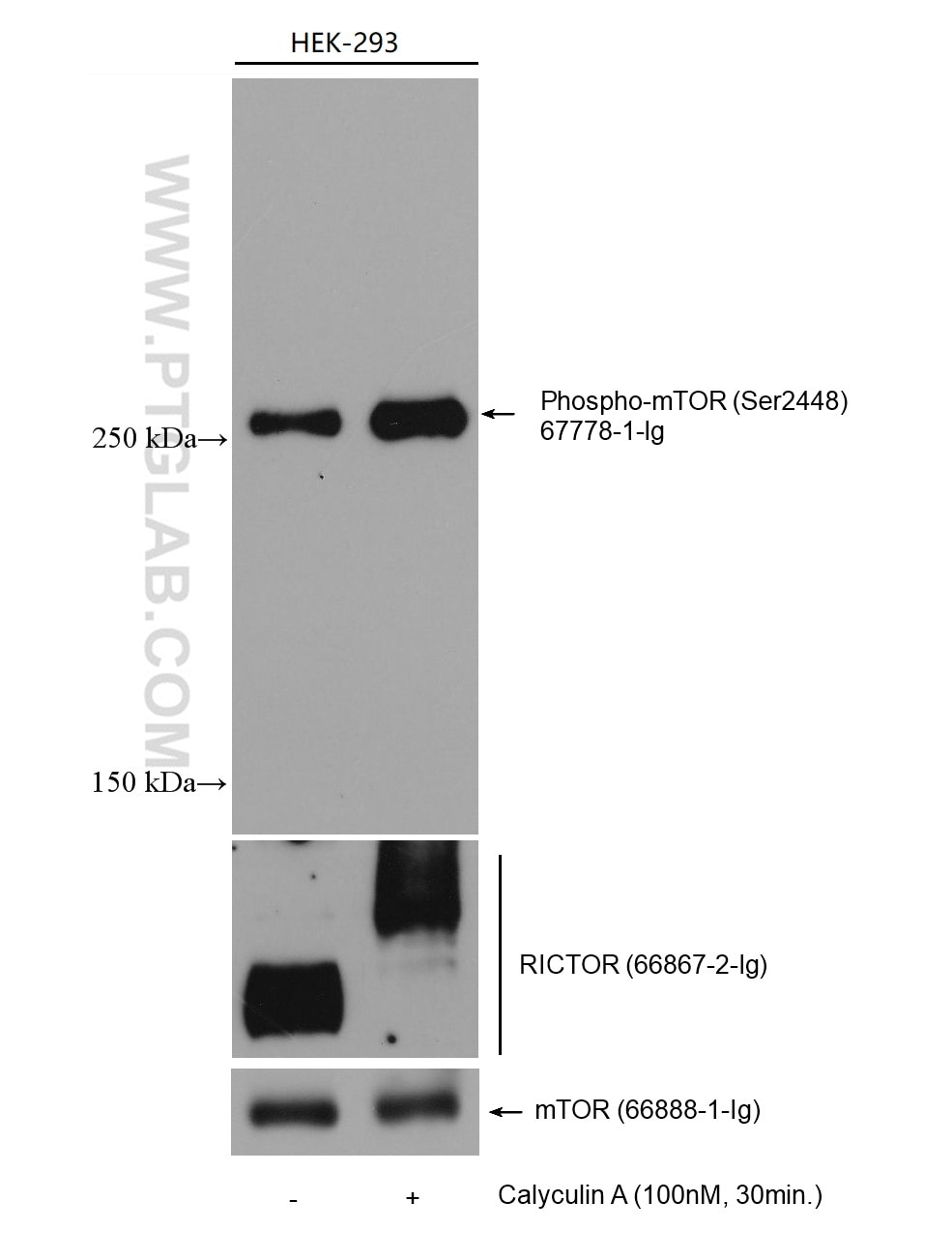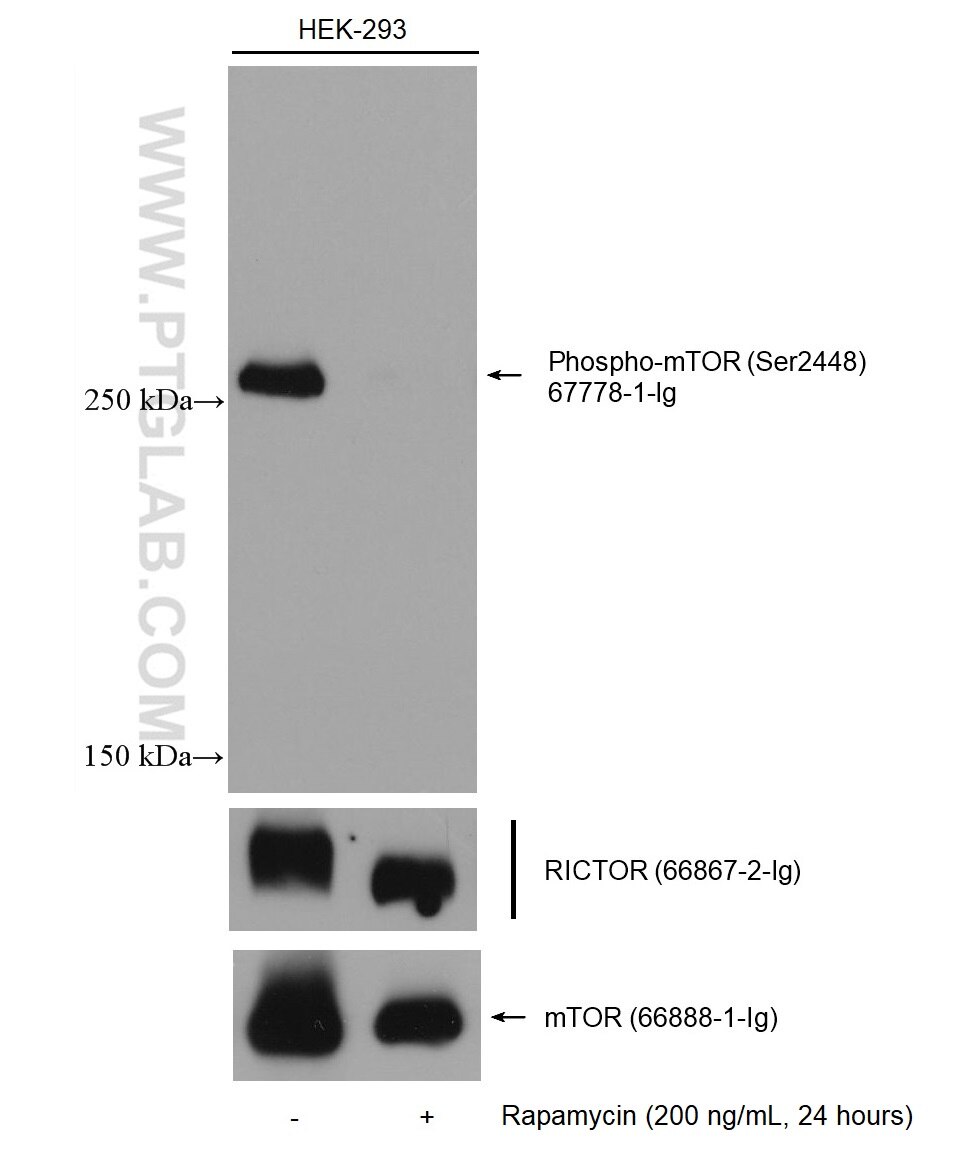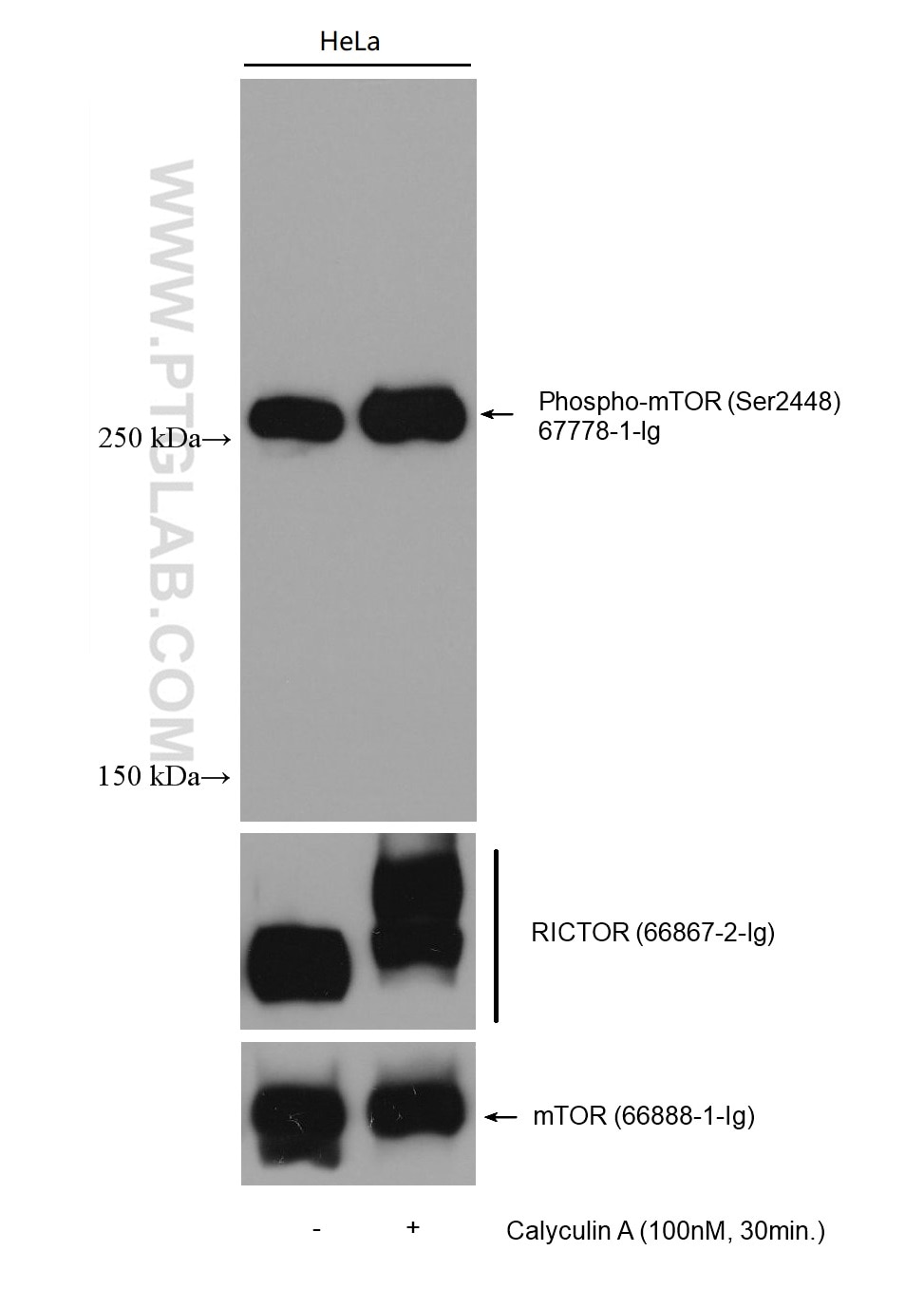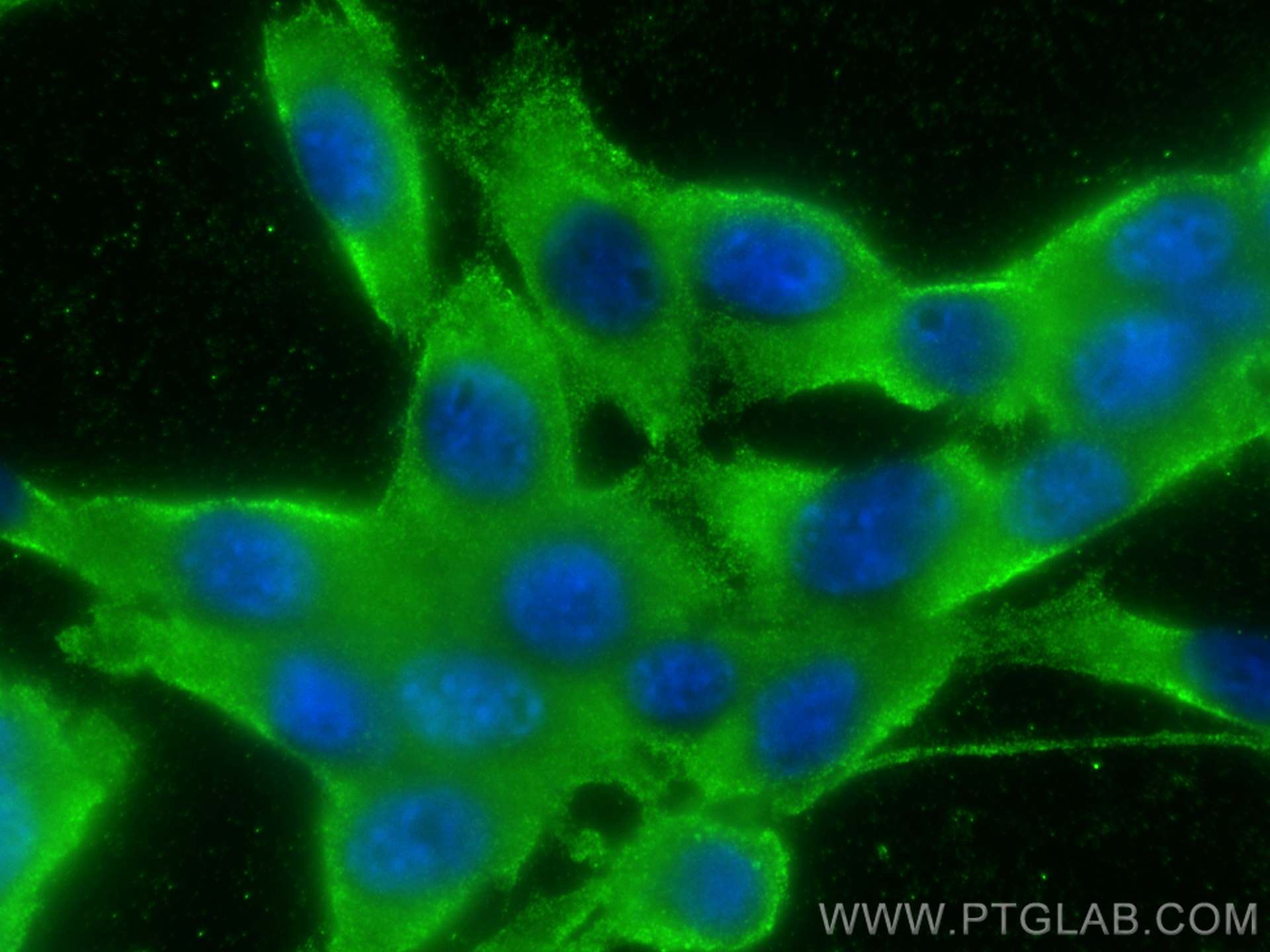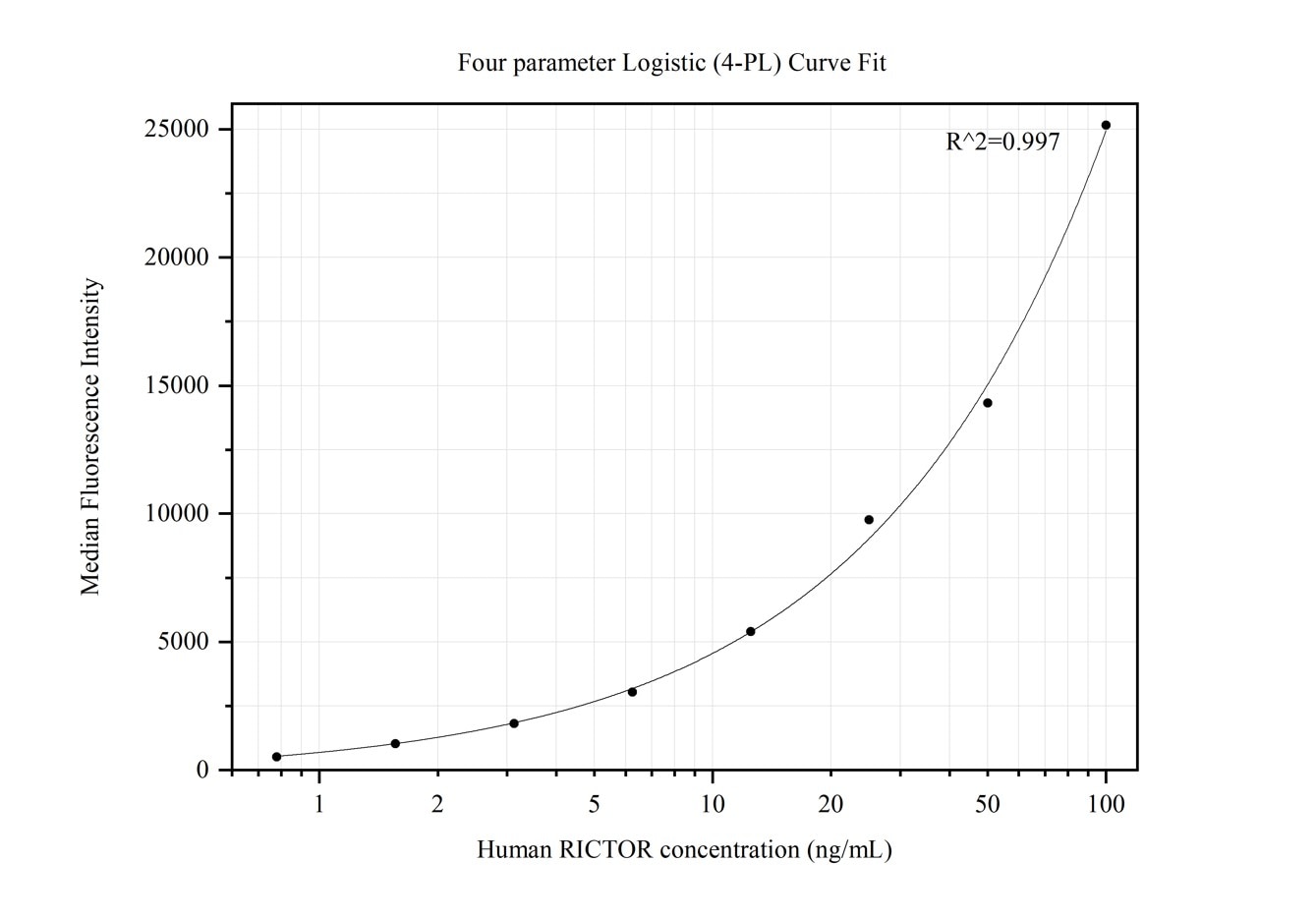RICTOR Monoclonal antibody, PBS Only (Capture)
RICTOR Monoclonal Antibody for WB, IF/ICC, Cytometric bead array, Indirect ELISA
Host / Isotype
Mouse / IgG1
Reactivity
human, mouse, rat
Applications
WB, IF/ICC, Cytometric bead array, Indirect ELISA
Conjugate
Unconjugated
CloneNo.
1D1C4
Cat no : 66867-2-PBS
Synonyms
Validation Data Gallery
Tested Applications
Recommended dilution
| Application | Dilution |
|---|---|
| It is recommended that this reagent should be titrated in each testing system to obtain optimal results. | |
Product Information
66867-2-PBS targets RICTOR as part of a matched antibody pair:
MP50234-1: 66867-2-PBS capture and 66867-3-PBS detection (validated in Cytometric bead array)
Unconjugated mouse monoclonal antibody pair in PBS only (BSA and azide free) storage buffer at a concentration of 1 mg/mL, ready for conjugation.
This conjugation ready format makes antibodies ideal for use in many applications including: ELISAs, multiplex assays requiring matched pairs, mass cytometry, and multiplex imaging applications.Antibody use should be optimized by the end user for each application and assay.
| Tested Reactivity | human, mouse, rat |
| Host / Isotype | Mouse / IgG1 |
| Class | Monoclonal |
| Type | Antibody |
| Immunogen | RICTOR fusion protein Ag28487 相同性解析による交差性が予測される生物種 |
| Full Name | rapamycin-insensitive companion of mTOR |
| Calculated molecular weight | 192 kDa |
| Observed molecular weight | 192 kDa |
| GenBank accession number | BC029608 |
| Gene symbol | RICTOR |
| Gene ID (NCBI) | 253260 |
| RRID | AB_2882204 |
| Conjugate | Unconjugated |
| Form | Liquid |
| Purification Method | Protein G purification |
| Storage Buffer | PBS Only |
| Storage Conditions | Store at -80°C. |
Background Information
RICTOR, is a key component of the mTOR complex 2 (mTORC2) and is required for phosphorylation of Akt at serine 473. RICTOR is the upstream kinase of several AGC kinase family members including AKT, SGK, S6K mutants and several PKC isoforms. Activation of RICTOR-mTORC2 modifies actin organization and promotes cell proliferation and survival. Rictor is overexpressed in several cancers leading to hyperactive mTORC2 and has been shown to play a causal role in glioma formation. Rictor expression has been demonstrated to be regulated transcriptionally and via protein degradation.
